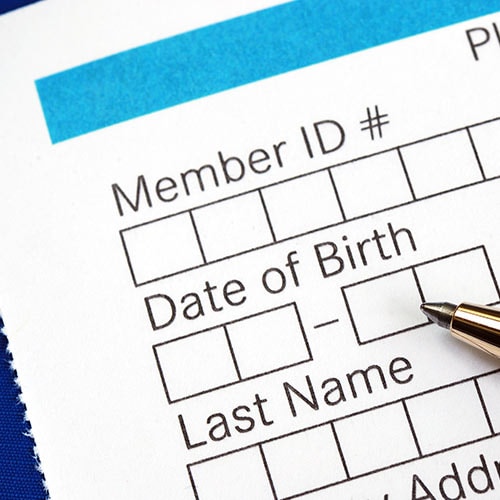Parading around with another’s identity may be at the top of many minds as fall—and Halloween—swiftly approach. What will your disguise be? How much candy will your children bring home? Will anyone know that it’s you? You might even be asking yourself these lighthearted questions as you read this article. However, when you think about All Hallow’s Eve this year, you may want to think about something a lot more sinister: those cybercriminals out there posing as your loved ones who have passed away.
Unfortunately, it’s all too true. The passing of a loved one, one of the most difficult times in our lives, has proven to be a boon for fraudsters—in other words, identity thieves who are posing as a deceased family member and capitalizing off that fraudulent identity. What does this so-called “ghosting” mean for you? Potentially a lot if you find yourself in this situation. Read on to find out what’s happening, and how you can try to protect your family and friends.
What is ghosting identity theft?
Ghosting is a type of identity theft that is very real—and is growing more than you might expect. In 2018, studies found 800,000 of the 2.5 million victims of identity theft were deceased persons.
While family members and friends are grieving the loss of a loved one, perhaps letting things like financial accounting slide a bit, criminals are using this lapse in oversight to their advantage. For example, you likely would not think to check the credit report of dear Uncle Lloyd who has passed. But this is exactly what identity thieves are counting on. In fact, a case by the U.S. Attorney’s Office in Maryland was brought for just this reason.
How does it happen? Another sad fact is this type of theft is often committed by a family member or close friend who might be in debt and unfortunately has access to the necessary personal information. Identity thieves also can literally just look at obituaries in the paper and online. After all, obituaries share all kinds of personal information. You can find out family member names, maiden names, birth dates, and other personal data that can prove to be a windfall for identity thieves, making stealing someone’s identity so easy.
Identity thieves also might get their hands on a death certificate or the Social Security death index. If someone has enough of the deceased’s personally identifiable information (PII), they could use their credit, apply for loans, buy houses, purchase cars, open bank accounts, provide their stolen name to law enforcement to avoid prosecution, claim social security benefits, and essentially use their information in all the ways you use your own PII.
Don’t forget that PII includes your Social Security number, your driver’s license, financial account information, and other contact information like your phone number and address. So never give this information out unless you must.
Steps you can take to prevent ‘Ghosting’
Sadly, tying up the loose ends of a deceased family member’s or friend’s identity and estate will involve more attention than you thought. To keep an identity safe, you’ll need to do several things:
- Send copies of his death certificate to the three major credit reporting bureaus to be make sure credit reports have an alert on them and are frozen.
- Review his credit activity to make sure nothing new pops up.
- As was mentioned above, don’t share too much information in an obituary that the public will see.
- Alert the Social Security Administration, so they can put a lock on his SSN.
- Make sure your loved one’s financial information and other documents are locked up, safe from prying eyes.
- Question any random bills that arrive and are addressed to your loved one.
- Continue to keep an eye on things in the years ahead when identity thieves expect you to get lazy.
Cybercriminals know how hard it is to catch the identity theft of deceased persons, and they bank on this. Moreover, to report this kind of theft, you’ll need to be the executor of the estate or legally entitled to act on his behalf. The last thing you want to think about during your time of grief is fraud, but don’t let your guard down. Continue to protect your loved one’s name and legacy.
Editor’s note: Our articles provide educational information. LifeLock offerings may not cover or protect against every type of crime, fraud, or threat we write about.
This article contains
Start your protection,
enroll in minutes.
LifeLock is part of Gen – a global company with a family of trusted brands.
Copyright © 2026 Gen Digital Inc. All rights reserved. Gen trademarks or registered trademarks are property of Gen Digital Inc. or its affiliates. Firefox is a trademark of Mozilla Foundation. Android, Google Chrome, Google Play and the Google Play logo are trademarks of Google, LLC. Mac, iPhone, iPad, Apple and the Apple logo are trademarks of Apple Inc., registered in the U.S. and other countries. App Store is a service mark of Apple Inc. Alexa and all related logos are trademarks of Amazon.com, Inc. or its affiliates. Microsoft and the Window logo are trademarks of Microsoft Corporation in the U.S. and other countries. The Android robot is reproduced or modified from work created and shared by Google and used according to terms described in the Creative Commons 3.0 Attribution License. Other names may be trademarks of their respective owners.




